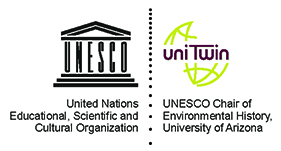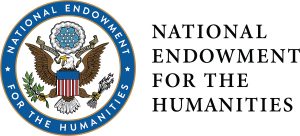Session 1: Sunday, July 12, 2020-Friday evening, July 17 2020
Session 2: Sunday, July 19, 2020-Friday afternoon, July 24 2020
Special Accommodations:
For those selected participants with special accessibility needs or dietary restrictions, please notify the local Project Co-Director Zeisler-Vralsted at dzeislervral@ewu.edu after selection.
For further information regarding accessibility at the Eastern Washington University campus, please contact Disability Support Services at DSS@ewu.edu or phone 509-359-6871.
Day 1 - Sunday:
Welcome and Keynote
1:00-5:00
Arrivals to Spokane, Washington
Co-Director Zeisler-Vralsted and Administrative Assistant will be on-call
7:00-9:00
Welcome Reception and Lecture at Riverpoint Auditorium, EWU-Spokane
Keynote Address -
"The Global Promises of Modernity and Development in the Twentieth Century"
David Pietz, UNESCO Chair in Environmental History, University of Arizona
Overnight in Spokane
Day 2 - Monday:
Theme - Folklore and Salmon Fishing in the Columbia River Watershed
8:00-9:00 - Project Co-Directors-Logistics, Overview of Week's Activities
9:00-12:00 - "Salmon and His People," Allen Pinkham and Steve Evans Keynote Lecture
12:00-1:00 - Lunch (provided by EWU)
1:00-3:00 - -Lead Faculty Colombi leads discussion of readings, preparation for Kettle
Falls Historical Center site visit
3:00-5:00 - Facilitator Watson leads discussion on curricular applications for the day's
discussions and readings.
7:00-9:00 - -Film Night (optional.) The film "DamNation" (2014). Lead Faculty
Lagendijk will lead the discussion.Overnight in Spokane
Day 3 - Tuesday:
Theme - Kettle Falls - A Lesson in Sustainability
8:00-10:30 - Travel to Kettle Falls Historical Center, Mission
11:00-1:00 - Tour of Center led by Kettle Falls Historical Center Board Member
1:00-2:00 - Lunch at the Center
2:00-4:00 - Discussion of Readings, Curricular Integration led by Facilitator Watson and Lead Faculty Colombi at the Conference Center
4:00-6:00 - Travel to Spokane
Overnight in Spokane
Day 4 - Wednesday:
Theme - Modernization in the 1930s
8:00-8:30 - Discussion of readings, preparation for Grand Coulee Dam visit led by Co-Director Zeisler‑Vralsted
8:30-10:00 - Visiting Faculty Laurie Arnold presents "Grand Coulee Dam and Its Impact on Indigenous Peoples"
10:30-11:30 - Co-Director Zeisler‑Vralsted and Lead Faculty Lagendijk present on irrigation and energy benefits from Grand Coulee Dam
12:00-1:30 - Travel to Grand Coulee Dam, boxed lunch on bus
2:00-4:00 - Tour of Grand Coulee Dam
6:00-7:00 - Tour of Grand Coulee Dam Visitors' Center
7:00-9:00 - Film showing, "The River" with discussion by Lead Faculty Lagendijk
Grand Coulee Light Show (optional)
Overnight in Grand Coulee, Washington
Day 5 - Thursday:
Theme -The Legacy of Large-Scale Dams
8:00-9:00 - Continental breakfast
9:00-11:00 - Tour of Colville Tribal Museum led by Curator Jennifer Ferguson
11:00-1:00 - Curricular opportunities and preparation of Colville Tribal Museum visit led by Facilitator Watson
1:00-2:00 - Lunch
2:00-3:30 - Travel to Spokane
The rest of the day/evening is time for reflection and lesson plans.
Overnight in Spokane
Day 6 - Friday:
Theme - Competing Narratives
9:00-10:00 - Visiting Faculty Margo Hill presents "The Status of the Spokane Tribe and Congressional Compensation"
10:00-12:00 - Discussion of readings, curriculum integration led by Project Co-Directors and Facilitator
12:00-1:00 - Lunch
1:00-5:00 - Lesson Plans
Conclusion of workshop
EQUAL OPPORTUNITY STATEMENT
Endowment programs do not discriminate on the basis of race, color, religion, sex, national origin, disability, age, or sexual orientation. For further information, write to NEH Equal Opportunity Officer, 400 Seventh Street, S.W., Washington, D.C. 20506. TDD: 202/606 8282 (for the hearing impaired only).





